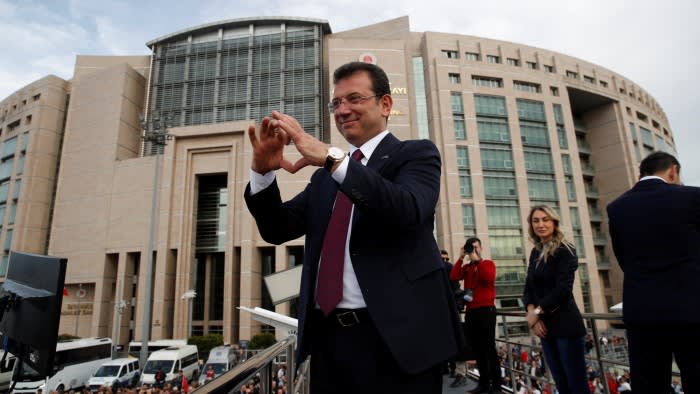Iraqis Draft ‘Alternative Constitution’
More than 118 political, tribal and military groups – with no representation in the council – met in Baghdad late on Wednesday, March 31, to probe the alternative measure, calls for handing over power to a “constituent assembly” instead.
The attendees said the old constitution – called the transitional administrative law – is lacking serving no interests of the Iraqis.
The new draft law states that the permanent constitution could be approved in a general referendum with the nod of 75 percent of at least 50 percent of those eligible voters.
Clauses in the original draft reportedly stipulate that two-thirds of voters in any three provinces can veto the permanent charter in a referendum. The Kurds’ self-rule region includes three provinces, raising fears that they could control the fate of the whole country.
The alternative law made no change to the clause providing for a federal state with two official languages, where Islam will be a source of legislation but not the basis for it.
It calls for the president of the country to be also the commander of its armed forces – against the clause of the original draft which says the army should be under the occupation forces.
The alternative law was discussed in the conference, sponsored by Al-Sharif Bin Ali, the leader of the Constitutional Monarchy Movement for Iraq.
The proposed draft stipulates the government should include a constituent assembly, a presidency council, a cabinet which also have authority over the judicial body.
‘Confusing’
The participants launched a scathing attack against the council-approved law for leaving the role of the army or its mission shrouded in vagueness.
“It is disconnected and confusing as to the mission of the army,” brigadier Mahmoud Ezzat told IslamOnline.net.
Ezzat said that the alternative law clarified the role of the army, including the approval of the legislature as a precedent to deploying troops outside the country.
Ibrahim Al-Basri, of the Iraq Victims Society, said the law drafted by the Governing Council, whose members he stressed are selected by the governing council, would end in the “dustbin of history”.
“The genuine law is the one made by the Iraqis themselves,” Basri said.
The basic law, which lays the foundations for direct elections before the end of January 2005, came under fire after U.S. civil administrator Paul Bremer said a few days before the jovial signing ceremony that he could veto the country’s temporary constitution if it did not fit the “American vision” of democracy.
“Our position is clear, and the text that is in there now is as I say. It can’t become law until I sign it,” he has said.
IGC members and U.S. occupation officials had indicated the interim constitution may end up offering general guidelines, but leave the details on the biggest and thorniest issues for the writers of a permanent charter.
Comprising more than 60 articles, it enshrines values like freedom of speech and religion and is a big step in clearing the way for the June 30 transfer of sovereignty from the U.S. military to an interim Iraqi authority.
Although in principle the draft accepted the concept of a federal state, the question of self-rule for the Kurdish minority would only be decided finally by a future elected national assembly.


